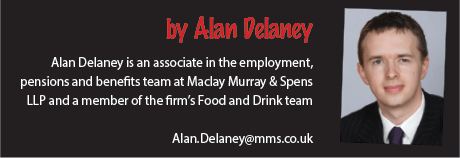
Some big names, including one major high street fashion retailer, were among the latest companies “named and shamed” for failing to pay the national minimum wage. How does the system of penalties and publicity work?
Why has the national minimum wage been in the news again?
The UK government last month named and shamed a further 37 employers who have failed to pay their workers the national minimum wage (NMW) (standard adult rate currently £6.50/hour). There were three Scottish businesses on the list, including an award-winning beauty parlour. The government had previously named 55 employers since the new naming and shaming regime was introduced in October 2013. It is now a well-established part of the enforcement regime.
What are the consequences for those named and shamed?
The government indicates that between them, the 37 companies owe workers a total of £177,000 in pay arrears. In addition they have been charged penalties of over £55,000. Of at least equal impact however, must be the damaging publicity that the companies have been subject to. Those facing the media glare this time around included high street retailer H&M, who blamed time logging errors in certain stores and service station operator Welcome Break, who blamed new IT systems as partly the reason for the shortfall.
Is tougher enforcement likely to continue?
Absolutely – the government has just announced a further £3m increase in HMRC’s annual minimum wage enforcement budget. The general secretary of the TUC has suggested those named and shamed represent only the tip of the iceberg. We are likely to see more names to emerge. There are also plans to increase the current penalty of up to £20,000, so that the penalty could be levied in respect of each underpaid worker. This would be a hugely significant financial deterrent if brought into force.
How does it operate in practice?
The system of naming and shaming only applies to employers found by HMRC to have arrears of over £100. Employers have 28 days to appeal a notice of underpayment issued by HMRC. If they do not appeal, or are unsuccessful, they will be considered by the Department for Business Innovation and Skills (BIS) for naming and shaming. They are given 14 days to make representations as to whether they meet exceptional criteria not to be named, after which they can be named by BIS in a press release.
So has it been all good publicity for NMW compliance?
Well, apart from it emerging that the government managed to get two of the 55 companies wrong on the initial list of those named and shamed, which caused some embarrassment to the new regime. In a separate climb-down, reinforcing the dangers of social media, the cricketer Stuart Broad had to apologise after making an ill-advised post on Twitter as to how minimum wage recipients in the UK were within the top 10% of the world’s earners.
Where can employers obtain further advice on NMW?
Further advice can be found at www.gov.uk/national-minimum-wage






















